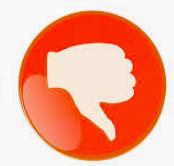On Wednesday April 29th the Dow Jones Industrial Average rose 532 points on news that Gilead's remdesivir demonstrated a “clear-cut positive effect" in treating COVID. The effect may have been clear-cut, but that didn't mean that the magnitude of the effect was sufficient to take the steam out of the pandemic.
Indeed, on April 30 I pointed out (See Remdesivir 1st Controlled Trial Is No Cause For Celebration) that although the drug did provide a modest decrease in the hospital stay of the patients who received it (1), we were hardly witnessing a "Jonas Salk moment."
Perhaps we were expecting too much in that case. After all, the patients who received the drug were very ill and it's not clear whether their condition was due to the virus, the body's deadly immune response, or both. It was not unreasonable to expect that patients with less severe disease would stand to benefit more.
Such an assumption may be reasonable but that doesn't mean that it would be correct. And based on a new JAMA paper it seems clear that patients with moderate disease received little or no benefit from the drug. Disappointing? Yes. Surprising? No. The drug did little or nothing. Here are the details.
An 11-day randomized Phase 3 trial of almost 600 patients, all with moderate COVID, was conducted to compare the clinical status (2) of three groups (~200 patients each) on day 11:
- patients who received remdesivir for 5 days
- patients who received remdesivir for 10 days
- patients who received standard care
The findings were a bit strange. On day 11, patients who had received five days of remdesivir showed a statistically significant improvement compared to those who received standard care but not a clinically significant difference. And the patients who received a 10-day course (3) of the drug experienced no difference, either statistically or clinically.
The conclusion, as stated by the authors, is rather obvious:
Among patients with moderate COVID-19, those randomized to a 10-day course of remdesivir did not have a statistically significant difference in clinical status compared with standard care at 11 days after initiation of treatment. Patients randomized to a 5-day course of remdesivir had a statistically significant difference in clinical status compared with standard care, but the difference was of uncertain clinical importance.
D. Brainard, MD, et.al., JAMA. Published online August 21, 2020. doi:10.1001/jama.2020.16349
NOW, WHAT?
Two clinical trials involving more than 1,600 patients have shown effects ranging from none to modest. It is difficult to imagine that the hopes of remdesivir being a silver bullet to conquer COVID will ever be realized, at least not as an IV treatment for hospitalized patients. But it is still possible that the drug hasn't been given a fair shake. As a direct-acting antiviral, early administration is important and no patients in either of these trials were given the drug until they were already hospitalized and quite ill. It is possible (perhaps even likely) that no antiviral drug, no matter how potent, will be able to alter the course of COVID when given days/weeks after the start of the infection. Perhaps the best shot for remdesivir would be very early administration, perhaps as in inhaled powder after a rapid diagnostic saliva test. (Gilead is working on a dry powder formulation.)
Or, more likely, as is the case in drug discovery, the first drug to treat a condition or infection is rarely the best. The first HIV/AIDS drug, AZT, did little or nothing to prolong the lives of AIDS patients after one year of therapy. The first direct-acting hepatitis C drugs, boceprevir and telaprevir (2011) were relegated to the antiviral scrap heap within a couple of years as they were replaced by the much superior Sovaldi, which itself has been replaced by more potent drug combinations. Such is the nature of drug discovery,
If a game-changing COVID antiviral drug is ever found, it is quite possible that it doesn't exist yet.
NOTES:
(1) The patients treated with remdesivir were released from the hospital after 11 days, compared to 15 days for patients who didn't get the drug.
(2) According to the paper: "The primary end point was clinical status on day 11 on a 7-point ordinal scale ranging from death (category 1) to discharged (category 7)."
(3) The 10 days wasn't really ten days. According to the JAMA paper the median length of treatment in that group was 6 days.




